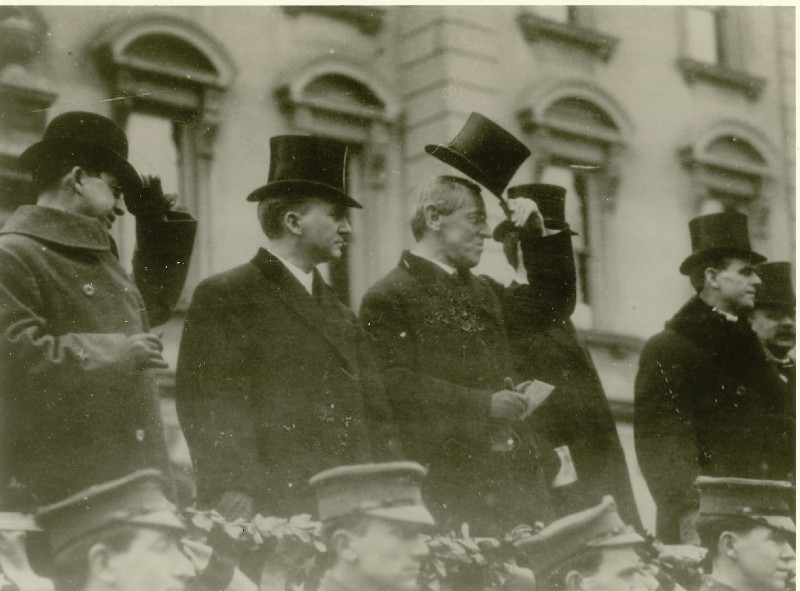
Woodrow Wilson went down in history as one of the most intellectual presidents ever, but a six month period of time starting in 1914 truly defined his character. Having just been elected in 1912, Wilson was just beginning to get his policies implemented when he was faced by tragedy and international conflict. The decisions that he made during this time would have historic implications and they also may have helped him through the greatest personal challenge of his life.
The first term
Wilson won the election of 1912 in the midst of a split in the Republican party and would ease into the presidency after a long campaign. In 1913 Wilson was able to pass the Federal Reserve Act which strengthened the banking system. This was a major accomplishment and that also prepared the country to fund World War I only a few years later.
After a productive start to his presidency, tragedy struck with the death of his wife Ellen in August of 1914. After her death Wilson went into a deep depression and was not able to get very much done in regards to legislation. To make matters even worse, by the fall of 1914 World War I was underway and there were already calls for the United States to get involved.
World War I
From the beginning of the war Wilson had resisted calls for the U.S. to enter. His goal was for the U.S. to remain neutral and to have a part in peaceful negotiations to end the war. Even after the RMS Lusitania was sunk, Wilson did not enter the U.S. into the conflict. One has to wonder if the loss of his wife had anything to do with this decision? There would surely be massive amounts of casualties if the country had entered the war, so being quite aware of the preciousness of life may have given him a different perspective.
After running and winning the 1916 presidential election on an anti-war platform, Wilson was left with no choice but to enter the war. In May of 1917, after repeated submarine attacks on U.S. interests, the U.S. declared war on Germany. By waiting to get into the war late, Wilson had undoubtedly saved thousands of lives. Still, over 116,000 Americans died in the war, something Wilson tried to avoid at all costs. When the U.S. and it’s allies won the war the American people knew that it was the right decision.
Looking back at Wilson’s presidency it seems that the focus he had to put on World War I was what allowed him to move on from the passing of his wife. The call to lead his country was much greater than any personal loss. It is a true sign of leadership for someone to make sound decisions in the midst of personal tragedy and international pressure. So as we look back after 100 years, we now have a better understanding of Wilson’s presidency and can reference his choices and heroics when we look at current conflicts around the world. Though the times are different, history seems to repeat itself.